After realizing there were critical differences between the localized English and Japanese versions of Final Fantasy 7 Remake, I started rewatching and comparing as many cut scenes as possible. When I say “critical,” I don’t mean that the localizers made enormous errors or deviations from the Japanese. I mean minor details can build to important differences in how players understand characters, their relationships, and their motivations. Tifa is a great example of how localization “translates” the heroine figure.
Tifa protects the SHINRA employees because….?
Tifa, Cloud, and the Avalanche group are attacked while riding the train. The train is full of passengers though, including an NPC identified as a SHINRA middle manager. Tifa hurries the passengers to a safe car so that her group can fight off the robots. The SHINRA guy seems confused. Why would Tifa try to save these SHINRA employees?
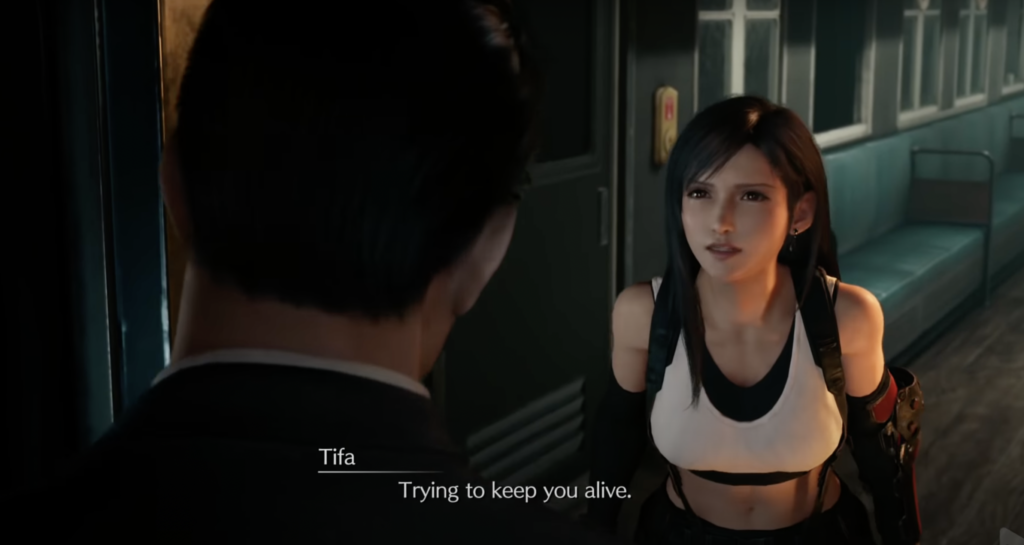
SHINRA man shouts, “What are you doing?”
Tifa replies,
Japanese: そこならきっと安全だから。
My translation: It’ll be much safer over there!
Official English script: Trying to keep you alive!
Japanese Tifa gives an explanation on why she is pushing the SHINRA employees into the other car. Frankly, English Tifa seems annoyed. I can hear this with a little extra, “Trying to keep you alive, idiot!”
He retorts, “But I work for SHINRA. I’m the enemy.” Tifa shouts back,
Japanese: 敵じゃない
My translation: We’re not enemies!
Official English script: I don’t care!
In Japanese, Tifa explains that she does not see SHINRA employees as enemies. This is new information. Previous cutscenes have shown Tifa at odds with Avanache’s violent tactics but she has never made a statement like this before.
The English “I don’t care!” can be interpreted in a number of conflicting ways. English Tifa could be saying “I don’t care you work for SHINRA.” However, she could also be saying “I don’t care that you are the enemy” which does not challenge the idea that SHINRA employees are just as complicit as those in power. Worse, she could be saying “I don’t care about what you have to say” in a tone that could easily be heard as hostile, impatient, or superior.
She protecc?
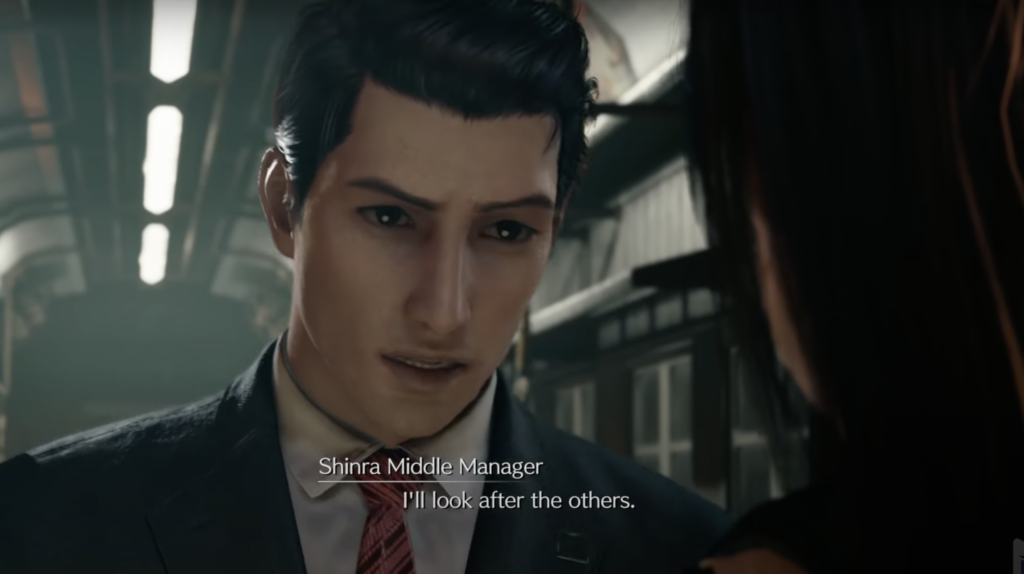
Tifa continues and says
Japanese: みんな守りたいの。
My translation: I want to protect everyone.
Official English script: I don’t want anyone to die. Please!
Japanese Tifa is explicitly presented as a protector. That little の in the Japanese script contextualizes her words as an explanation – as in, she’s doing this because she wants to protect the employees. This fits in with her overall characterization as a maternal nurturer. She takes on a motherly role to Marlene and acts as a caregiver to the “sick” man neighboring Cloud. The SHINRA manager concedes and says he will look after the people in the front car (面倒みる).
Small inconsistencies
Tifa quickly slames the door shut behind her. Spinning around to face the enemy, Tifa says
Japanese: 守るから。
My translation: I’ve got your back (or more literally, Because I’ll protect you)
Official English script: My turn.
Japanese Tifa is directly responding to the SHINRA manager. The two of them are collaborating to keep the other passengers safe. This recalls Tifa’s whole “Make connections! Be friendly to everyone!” ( 縁はお金より大事) lessons from earlier in the chapter. Her back is turned to the door but we understand she is guarding the door.
This is consistent with Tifa’s behavior throughout the scene. While Cloud or Barret fight, you can actually see Tifa in the background, hurrying civilians to the safer car. I’ve circled her in red first rushing a civilian. When that person drops to the floor, Tifa turns to protect him. Finally, she is seen pushing the SHINRA manager and others into the separate car.
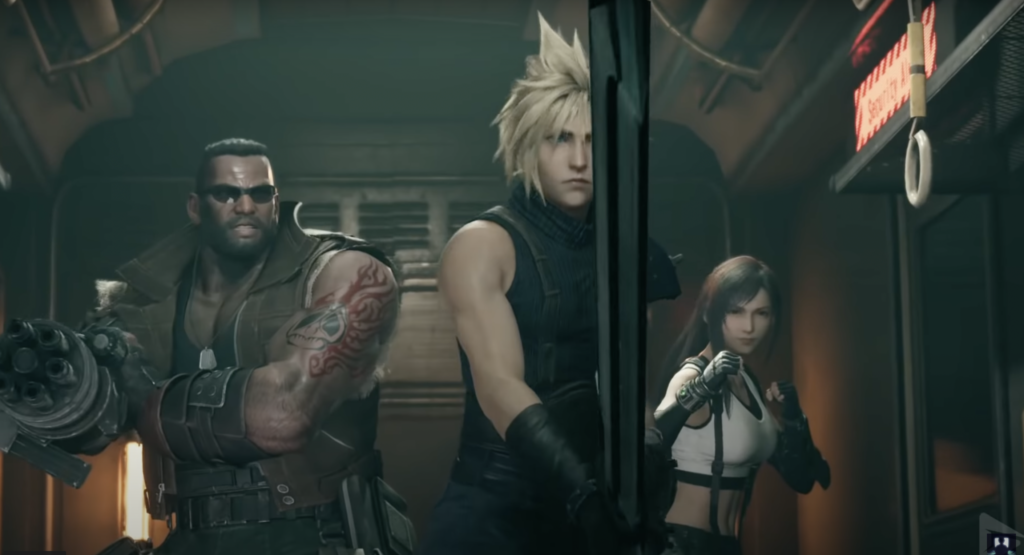
Generally, English Tifa comes off very differently. Once the NPCs are safely out of the way, it is as if Tifa turns her back to focus on her upcoming battle. It is “my turn” to shine, to fight, to take action, and generally kick ass. Of course, Tifa’s motivations are consistent across both languages. The only difference is a nuance in how we frame her character. Here, the motherly protector image fades behind the powerful image of a badass fighter, taking center stage.
Though to quibble, Tifa’s “My turn!” statement does not play out well with the actual cut scene. She does hit a robot out the train window, she immediately regroups with her team. Tifa’s turn did not last longer than a few seconds.
Western Heroine Tropes = Badass Fighter
I believe there are cultural differences that might inform these translation choices. That maternal framework is at odds with the way mainstream American media has packaged feminism in the last fifty years. The current trope places “badass” women and anything linked to traditional gender roles at opposite ends of the spectrum. Plus, North American audiences have an extensive library of badass female fighters who show up to kick ass. This prototypical female fighter most definitely would shout “My turn” right before a dramatic battle scene.
Still, Tifa’s overall role in the game is [spoilers] to help Cloud rebuild his memories and sense of self. I have not played the original game yet but I know that Tifa joins Cloud in the Lifestream. Whereas Aerith’s role is to connect the cosmos in a grand scale, Tifa’s role is to build people-to-people connections and community. Ultimately, I prefer this “protector Tifa” nuance because it stays consistent to her character arc. Though as an American, I do love me some badass women too.
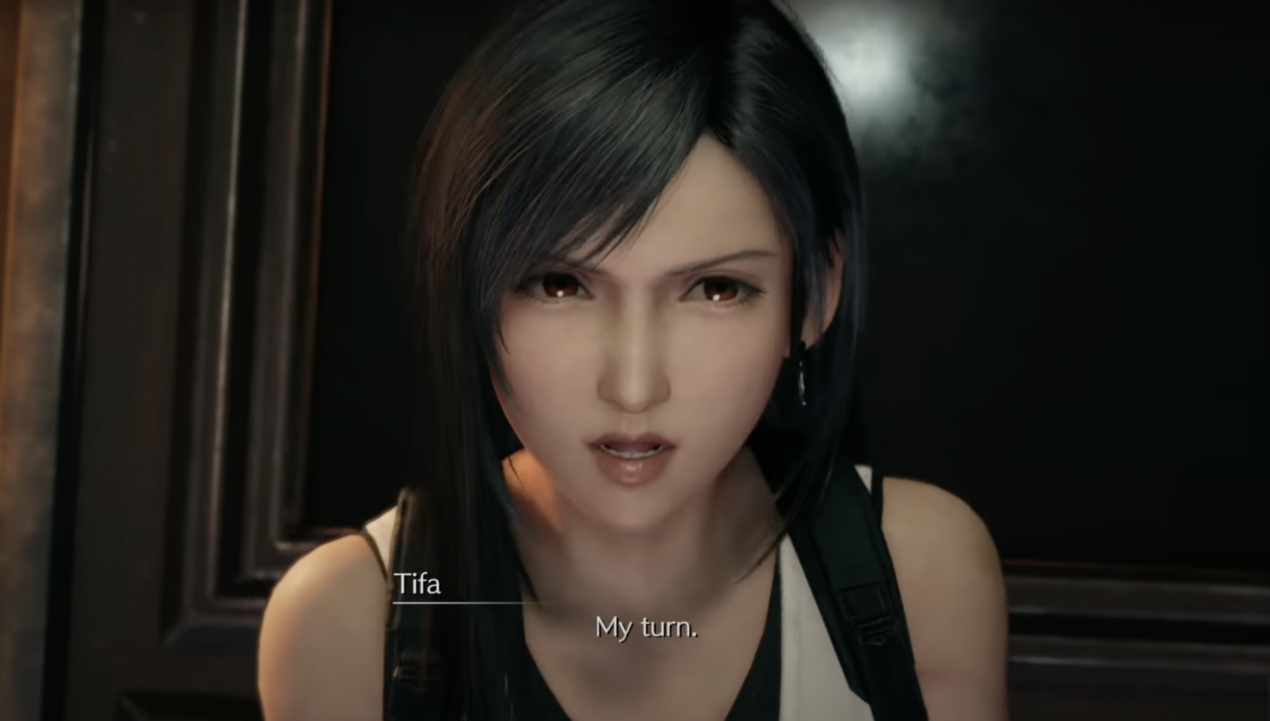
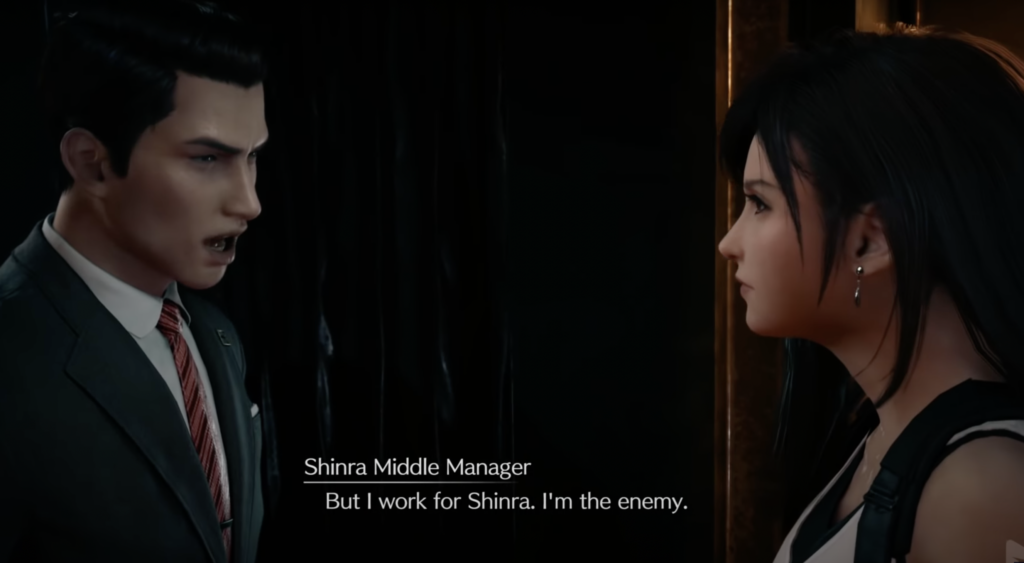
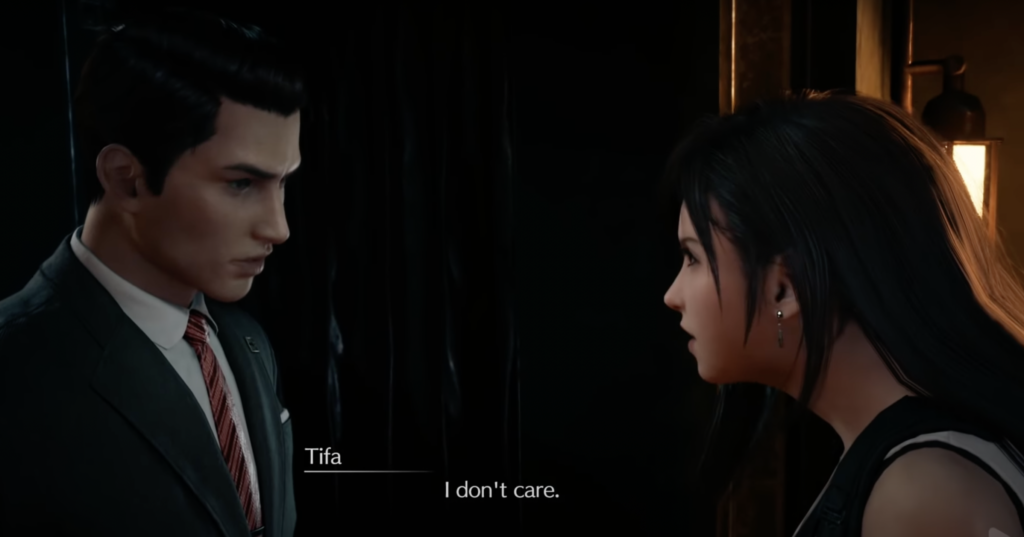

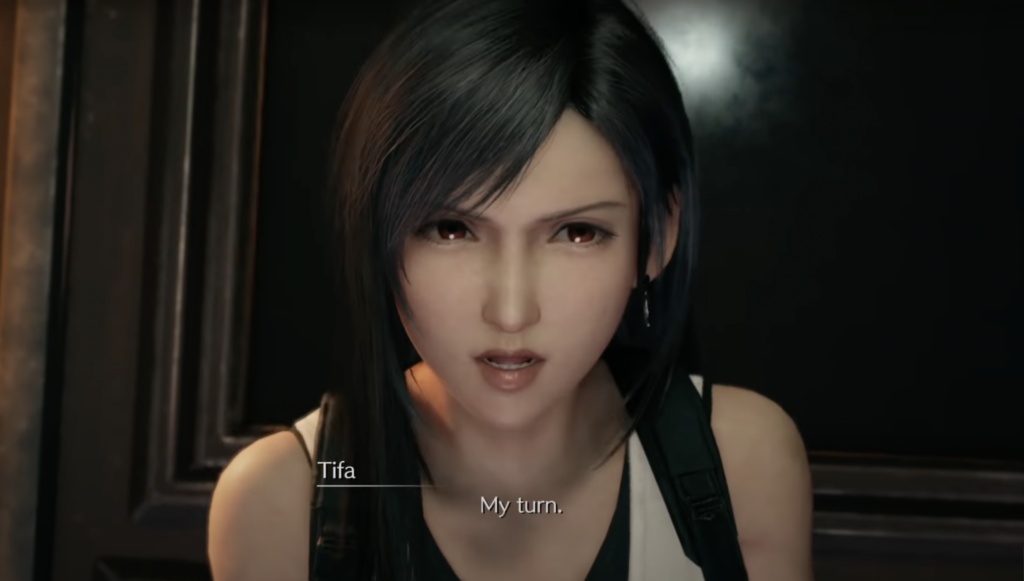
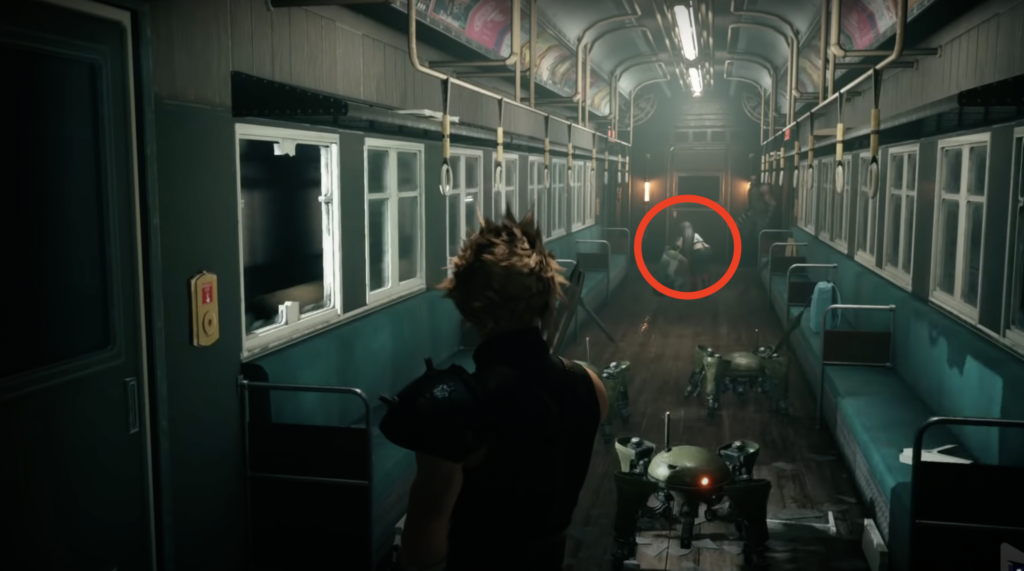
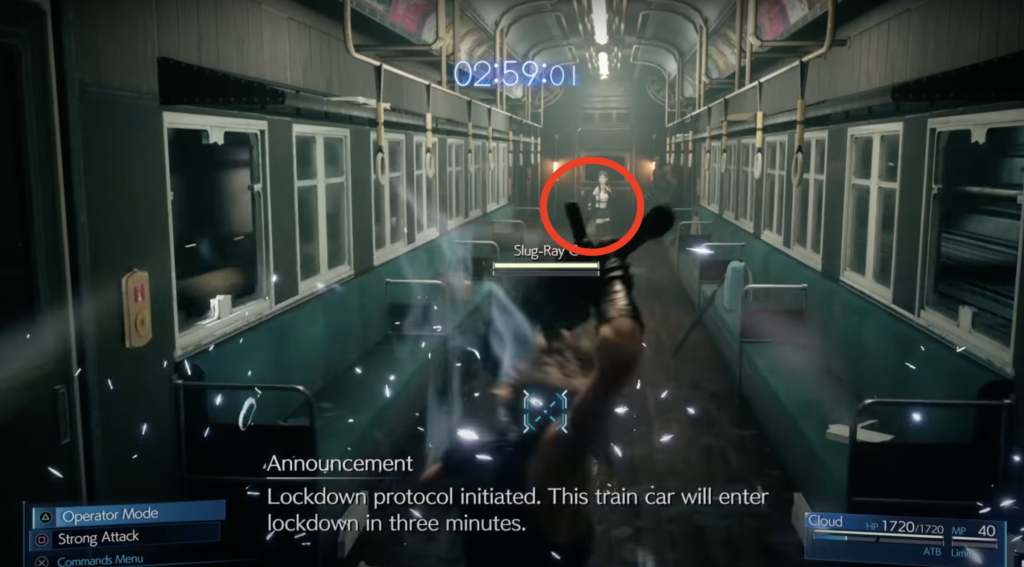
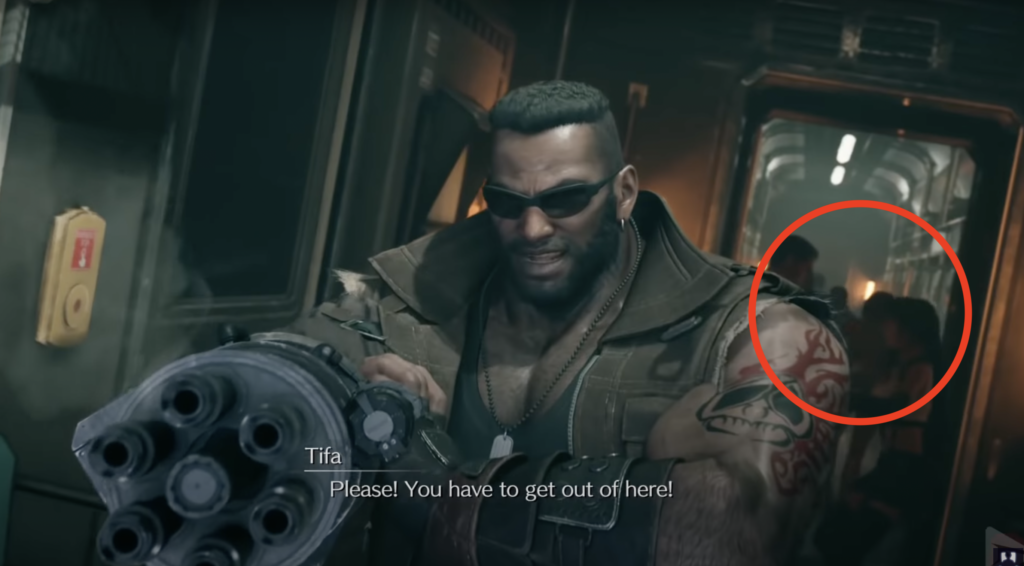
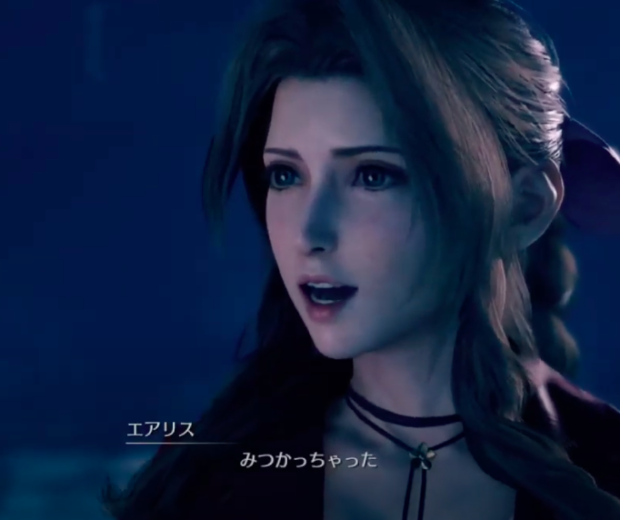
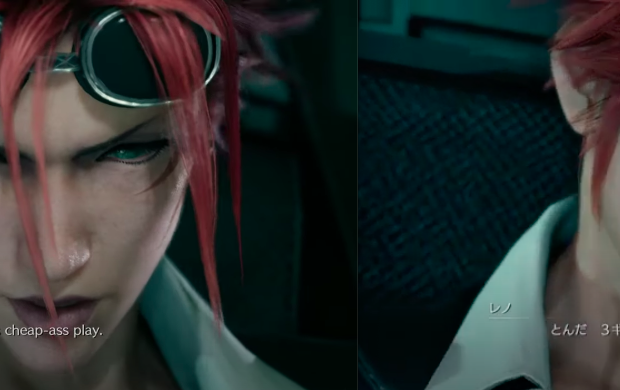
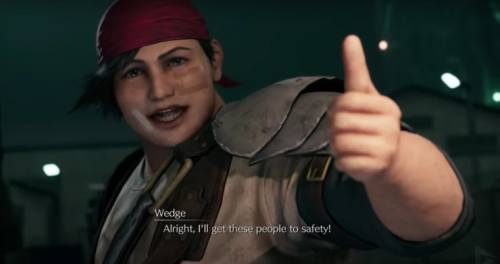
The So-Called Love Triangle in Final Fantasy VII Remake - Juliana Choi
May 6, 2021 at 11:41 am[…] localization differences can be tied to cultural differences in how emotions are shown? After all, Tifa’s personality is slightly different when comparing the two language settings. My other conclusion is that localizers were keen to play […]